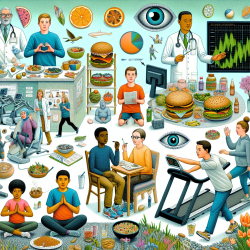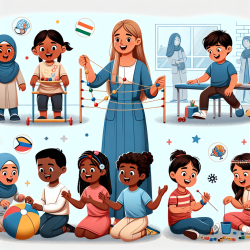Introduction
The COVID-19 pandemic has illuminated vulnerabilities within local and regional food systems, presenting a unique opportunity to reflect on these challenges and learn how to bolster resilience. The research article "Reflecting on COVID-19 for integrated perspectives on local and regional food systems vulnerabilities" provides valuable insights into these issues, using the Fraser Valley Regional District (FVRD) in Canada as a case study. This blog aims to guide practitioners in leveraging these insights to enhance their practice and encourage further research.
Understanding Food Systems Vulnerabilities
The research highlights that food systems are complex, involving interactions between human and biophysical environments and processes from production to consumption. The study identifies several key vulnerabilities, including:
- Changes in food access and preparation behaviors
- Lack of flexibility in institutional policies
- Cascading effects on social and public sector services
- Inequities in food security impacts and strategies
These vulnerabilities underscore the need for comprehensive-systems, regional, place-based, and temporal considerations in planning to enhance resilience against future shocks.
Implementing Integrated Planning Perspectives
Practitioners can improve their skills by adopting integrated planning perspectives as outlined in the research. This involves:
- Comprehensive Systems Approach: Examining all components of food systems, from production to consumption, to identify vulnerabilities and opportunities for resilience.
- Regional and Place-based Considerations: Understanding the unique sociocultural, economic, and environmental characteristics of a region to tailor strategies effectively.
- Temporal Dimensions: Considering short-, medium-, and long-term impacts to develop strategies that address immediate needs and support long-term sustainability goals.
By incorporating these perspectives, practitioners can develop more robust and adaptable strategies for enhancing food systems resilience.
Encouraging Further Research
The research highlights the importance of community-based participatory approaches in understanding and addressing food systems vulnerabilities. Practitioners are encouraged to engage with local stakeholders, including government, community members, and organizations, to gather diverse perspectives and insights. This collaborative approach can lead to more effective and sustainable solutions.
Further research is needed to explore the interactions between multiple simultaneous hazards and food system impacts. Understanding these dynamics can inform integrated approaches to long-term planning and resilience building.
Conclusion
The insights from the research on food systems vulnerabilities during COVID-19 offer valuable lessons for practitioners seeking to enhance resilience in their communities. By adopting integrated planning perspectives and engaging in further research, practitioners can contribute to the development of more resilient and equitable food systems.
To read the original research paper, please follow this link: Reflecting on COVID-19 for integrated perspectives on local and regional food systems vulnerabilities.










